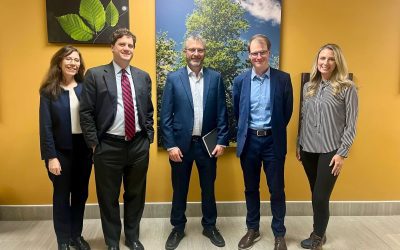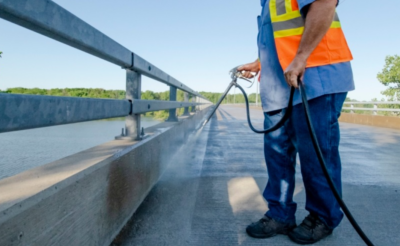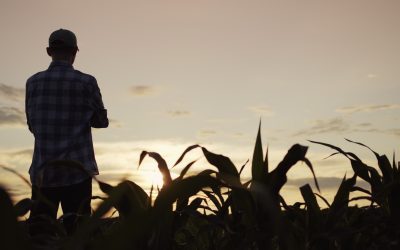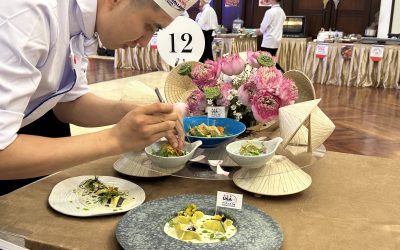Hoosier soybean grower climbing export ladder overseas
Craig Williams, a row-crop and melon producer in southwestern Indiana, was elected Secretary of the Executive Committee for the World Initiative for Soy in Human Health (WISHH) program. The program is under the umbrella of the American Soybean Association.

Williams, 53, is in his second term as a member of the WISHH committee but as secretary will serve for the first time at the executive level of the committee. He’s also wrapping up his third and final term as a member of the Indiana Soybean Alliance (ISA) board. Williams is the board director from District 3.

WISHH Executive Director Gena Perry said not everyone likes working in developing countries; but Williams during his visits to places like Africa and Asia, has shown a great deal of enthusiasm for it. Perry said he also offers great ideas for getting countries with emerging economies into a position to import more U.S. soybeans.
“He’s going to bring a lot of knowledge and background into what we do,” she said.
After receiving a bachelor’s degree in agricultural economics from Purdue University, Williams returned to his family’s 600-acre farm in Oaktown, which is between Vincennes and Terre Haute. Through the years, he has added 1,800 acres to the farm.
With help from his father, Williams raises yellow corn and white corn used in foods like tortilla chips. He also produces commercial soybeans along with soybean seed for Pioneer Hi-Bred International where he’s been employed full-time as a sales representative for more than 20-years.
Tomatoes, sweet corn, watermelon and cantaloupe are also raised on the farm close enough to the Wabash River for it to be a source of water for irrigation.
“We are fairly diversified. Dad kind of instilled that in me when I was younger,” he said.
Williams and his parents still live on the farm about a quarter mile away from each other.
Helping developing countries
WISHH works strictly with developing countries showing promise to become more of an importer of U.S. soybeans. Food companies in those countries are educated about the variety of uses for soybeans and how soybeans would be a better source of protein than what’s used now in making their products.
Instruction is also provided on investing in the equipment needed for turning soybeans into meal and other edible ingredients.

Williams said it can take years to get a return for U.S. soybean producers on the investment in growing markets struggling with poverty. However, he said it doesn’t take nearly as long to begin reaching people in those foreign lands challenged by hunger with a good source of protein.
“That’s the part of it I kind of enjoy,” he said.
One of the current WISHH projects he’s most excited about is in Cambodia where research is being conducted on using soy meal as feed stock for fish farmers. Researchers believe soy feed could improve the quality of fish while reducing pollution the food used now causes in the water.
“That’s one that’s been kind of at the forefront for the last couple of years for us,” he said.
Williams also spoke highly about his visit several months ago to a Rhode Island company using soybeans from the Midwest to make ready-to-eat products.
He said the federal government buys the soybeans and gives the food rolling off the assembly lines to starving children at refugee camps across the globe.
ISA and WISHH service
His first meeting as secretary of the WISHH executive committee is in December.
The WISHH board is made up of members from the Indiana Soybean Alliance and other soybean organizations from participating other major soybean producing states like Ohio, Kentucky, Illinois and Iowa. WISHH, based in St. Louis, Mo., is funded in part by the United Soybean Board and state checkoff programs.

Williams said he quickly learned that checkoff dollars from growers were in good hands after first taking his seat on the ISA board. He said the board is wise in making decisions on spending and works hard at making sure growers benefit from their checkoff dollars.
“They’re penny pinchers,” he said. “They want a good return for their investment.”
ISA receives the money from a .005-percent assessment on the net market price of soybeans farmers sell to the first purchaser. Checkoff assessments collected by Indiana first purchasers must be remitted to ISA by the last day of the first month following the end of the quarterly sales period.

The funds are used to sustain and grow demand for soybeans through methods like marketing and research under the Soybean Promotion Research and Consumer Information Act establishing the national checkoff program in 1990.
Williams said a lot of his work with ISA involved educating consumers on things like where their food comes from and the work involved in getting the products to their dinner tables.
He said the common threads he shared with board members and the amount of expertise involved in deciding where to invest checkoff dollars were most surprising about his ISA experience.
“It was real eye opening,” he said. “It was refreshing when I first got there to see that it’s basically a board of fellow farmers like myself.”
Posted: November 3, 2022
Category: Indiana Corn and Soybean Post - Fall 2022, ISA, News



